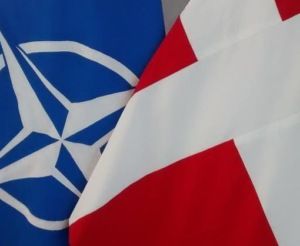News
Denmark to be the home to a new NATO centre
This article is more than 3 years old.

Denmark was selected to host one of the new NATO test centre (photo: Denmark at NATO)
As part of the NATO 2030 agenda, Copenhagen will soon host a test centre and acceleration site for quantum technologies.
The development of new technologies is crucial in the global competition between great powers. Quantum technology, artificial intelligence, and other new and disruptive technologies will change the way we live.
This is why the new centre is of great importance for the alliance.
A team effort
Like almost everything else in NATO, the quantum technologies centre is going to be a joint effort. It will be hosted at the Niels Bohr Institute and will see contributions from DTU, AU and the Danish National Metrology Institute.
Obtaining the presence of such a test centre in Denmark also required many people to work together. “Strong and close co-operation between government, research institutions, and industry – known as the triple helix – has been a prerequisite for delivering a solid Danish contribution,” said the defence minister, Morten Bødskov.
The minister for education and research, Jesper Petersen, is also really enthusiastic about the announcement: “It is a huge achievement that the Niels Bohr Institute, together with strong partners, will host a NATO centre for quantum technology. Denmark can offer some of the world’s leading research environments in the field. We can be proud of that.”
Denmark’s proposal for a NATO Quantum Centre was prepared by government, industry and research institutions, and was supported by the aforementioned ministers, along with their foreign and enterprise counterparts.
Mentoring program
The Danish contribution will consist of two elements: an accelerator and a test centre.
The accelerator – or incubator – is a training and mentoring program typically over 12-18 months. It will aim to make companies’ new technological solutions ready for the commercial market.
The test centre and manufacturing unit will consist of physical laboratories and testing facilities where new innovative ideas can be developed and tested.
The DIANA initiative
DIANA does not stand for the late British princess but rather for Defence Innovation Accelerator for the North Atlantic.
This initiative contributes to maintaining NATO’s technological edge by promoting the development and uptake of new and disruptive technologies within the alliance.
DIANA will be implemented through the establishment of test centres and accelerator sites – to help companies develop technologies that can contribute to defence and alliance knowledge, competence, and capability building – in a number of selected member countries.










































